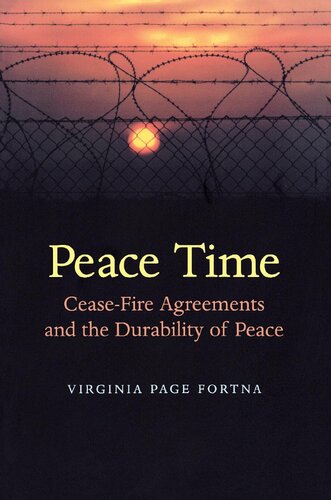

Most ebook files are in PDF format, so you can easily read them using various software such as Foxit Reader or directly on the Google Chrome browser.
Some ebook files are released by publishers in other formats such as .awz, .mobi, .epub, .fb2, etc. You may need to install specific software to read these formats on mobile/PC, such as Calibre.
Please read the tutorial at this link: https://ebookbell.com/faq
We offer FREE conversion to the popular formats you request; however, this may take some time. Therefore, right after payment, please email us, and we will try to provide the service as quickly as possible.
For some exceptional file formats or broken links (if any), please refrain from opening any disputes. Instead, email us first, and we will try to assist within a maximum of 6 hours.
EbookBell Team

0.0
0 reviewsWhy do cease-fire agreements sometimes last for years while others flounder barely long enough to be announced? How to maintain peace in the aftermath of war is arguably one of the most important questions of the post--Cold War era. And yet it is one of the least explored issues in the study of war and peace. Here, Page Fortna offers the first comprehensive analysis of why cease-fires between states succeed or fail. She develops cooperation theory to argue that mechanisms within these agreements can help maintain peace by altering the incentives for war and peace, reducing uncertainty, and helping to prevent or manage accidents that could lead to war.
To test this theory, the book first explores factors, such as decisive victory and prior history of conflict, that affect the baseline prospects for peace. It then considers whether stronger cease-fires are likely to be implemented in the hardest or the easiest cases. Next, through both quantitative and qualitative testing of the effects of cease-fire agreements, firm evidence emerges that agreements do matter. Durable peace is harder to achieve after some wars than others, but when most difficult, states usually invest more in peace building. These efforts work. Strong agreements markedly lessen the risk of further war. Mechanisms such as demilitarized zones, dispute resolution commissions, peacekeeping, and external guarantees can help maintain peace between even the deadliest of foes.